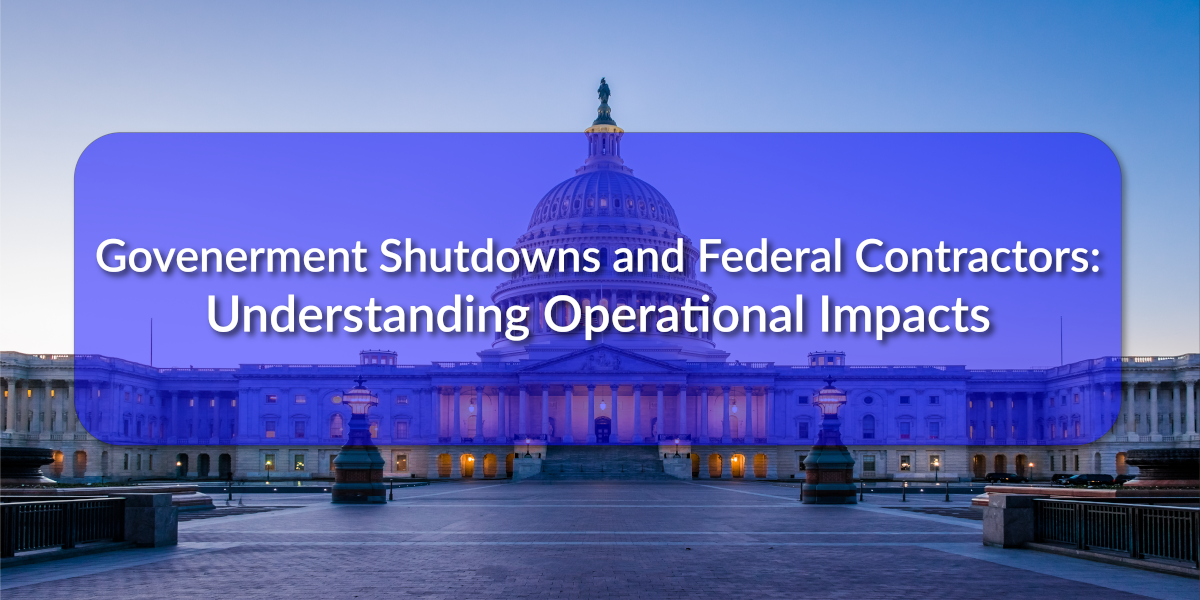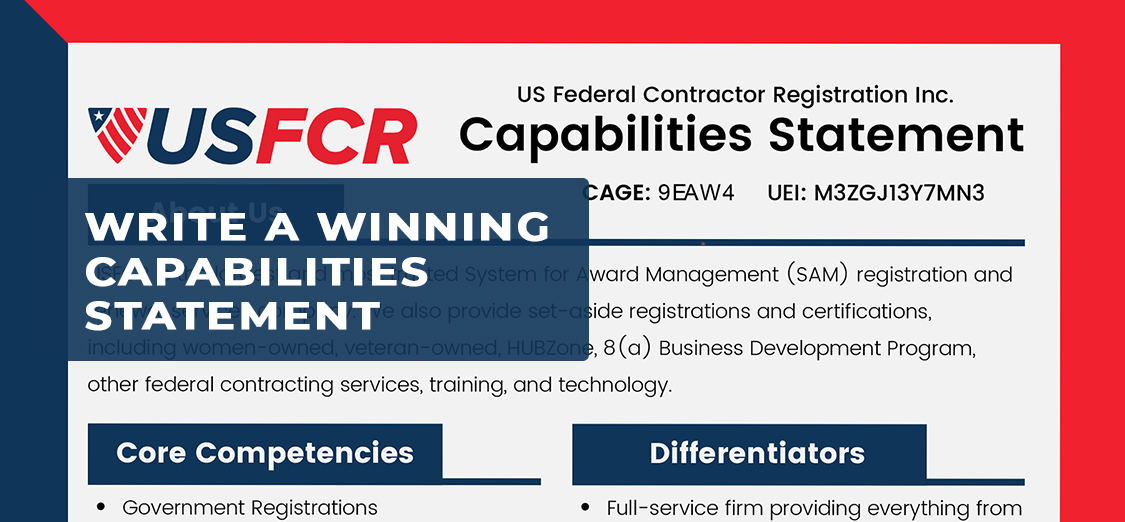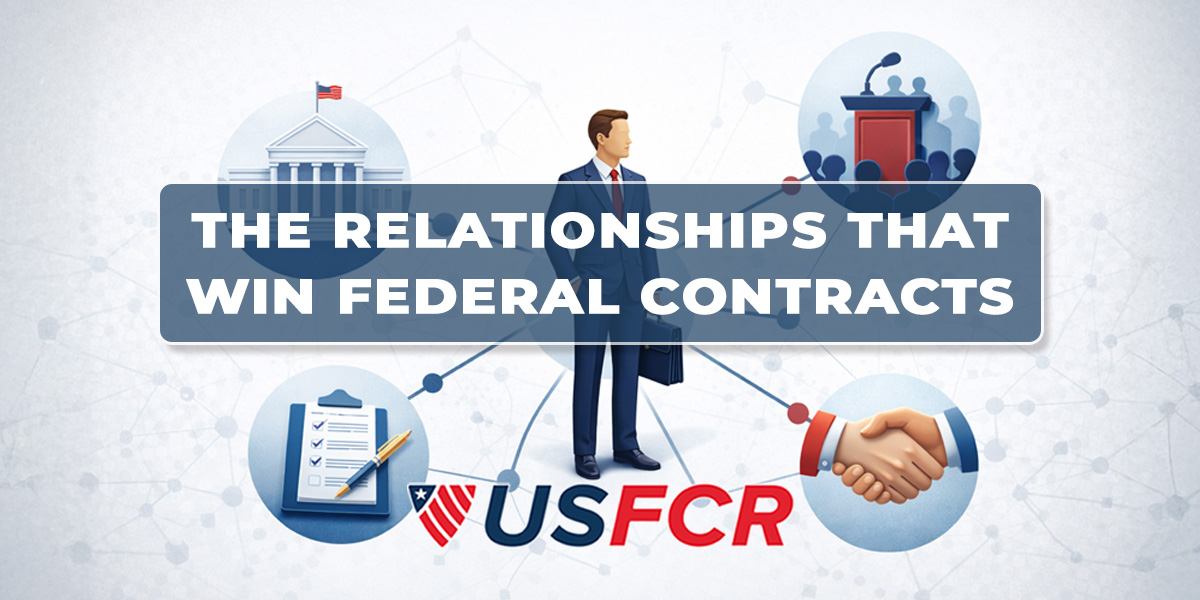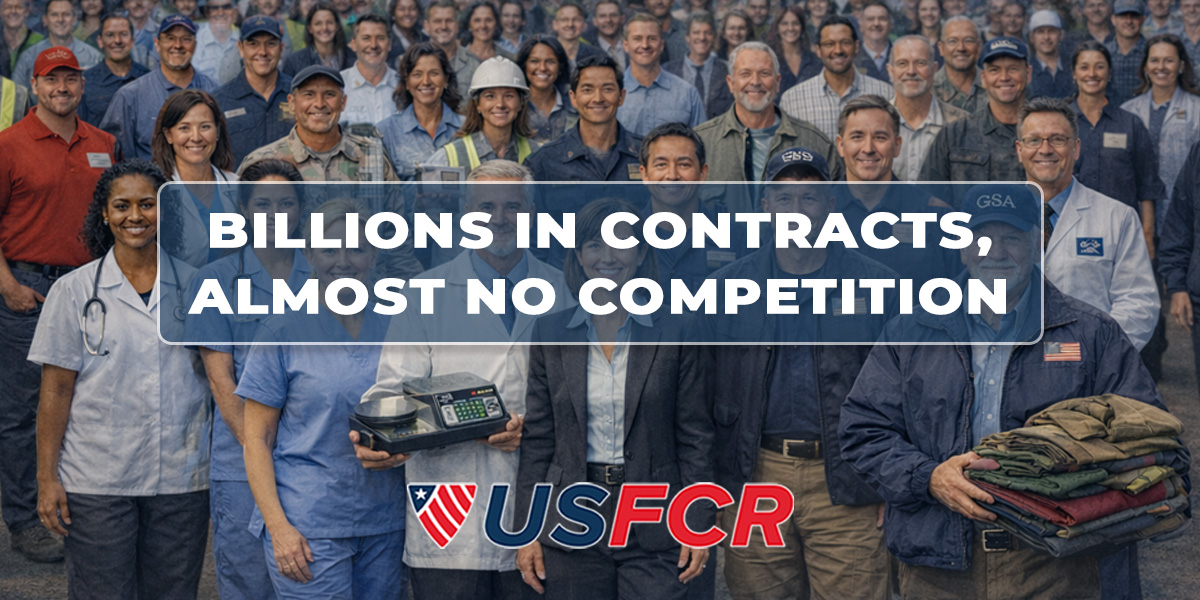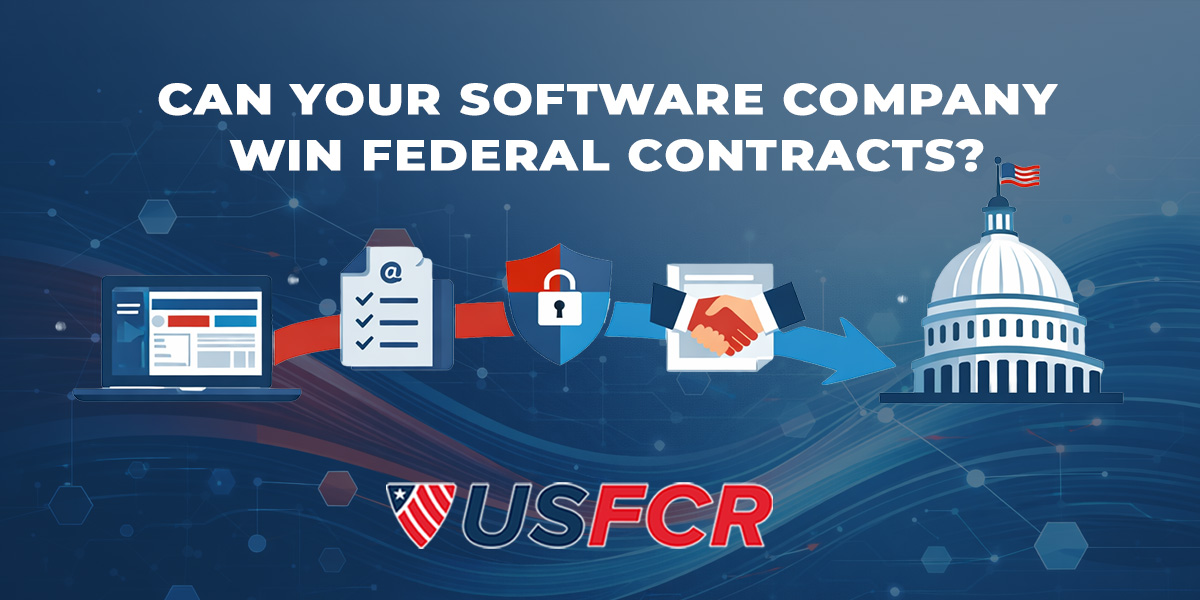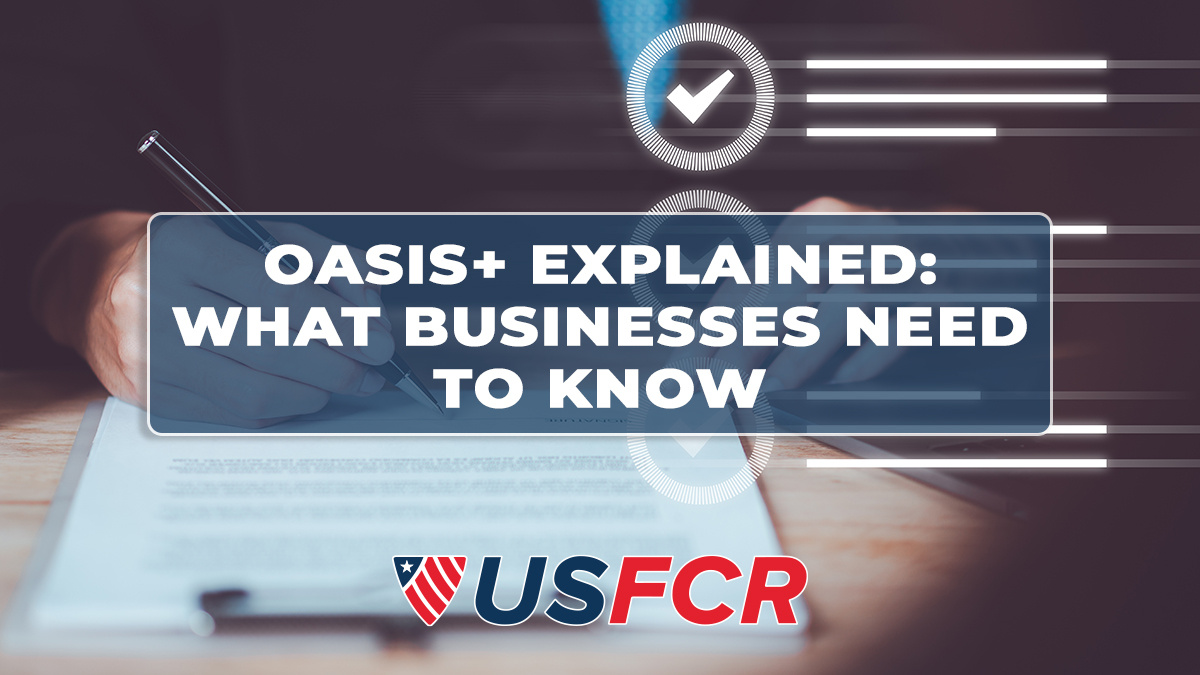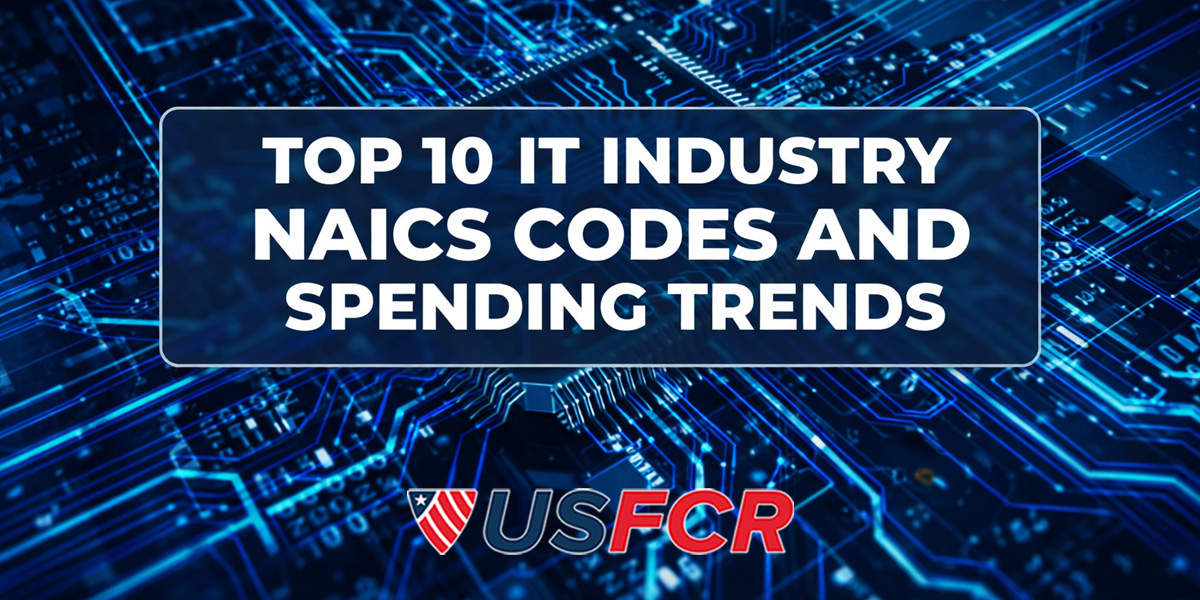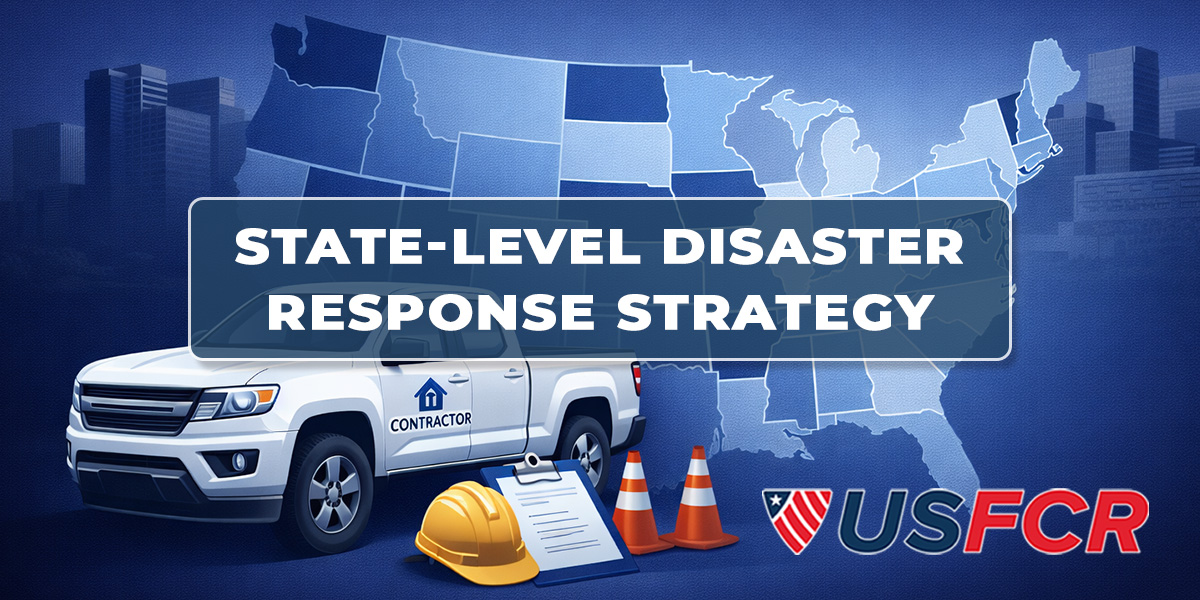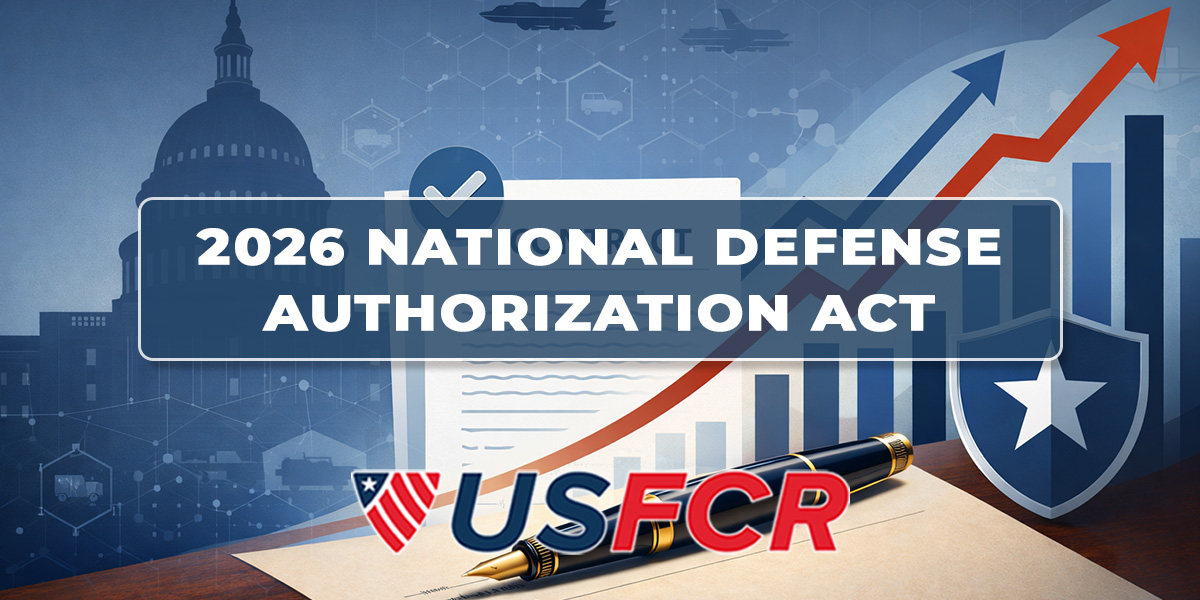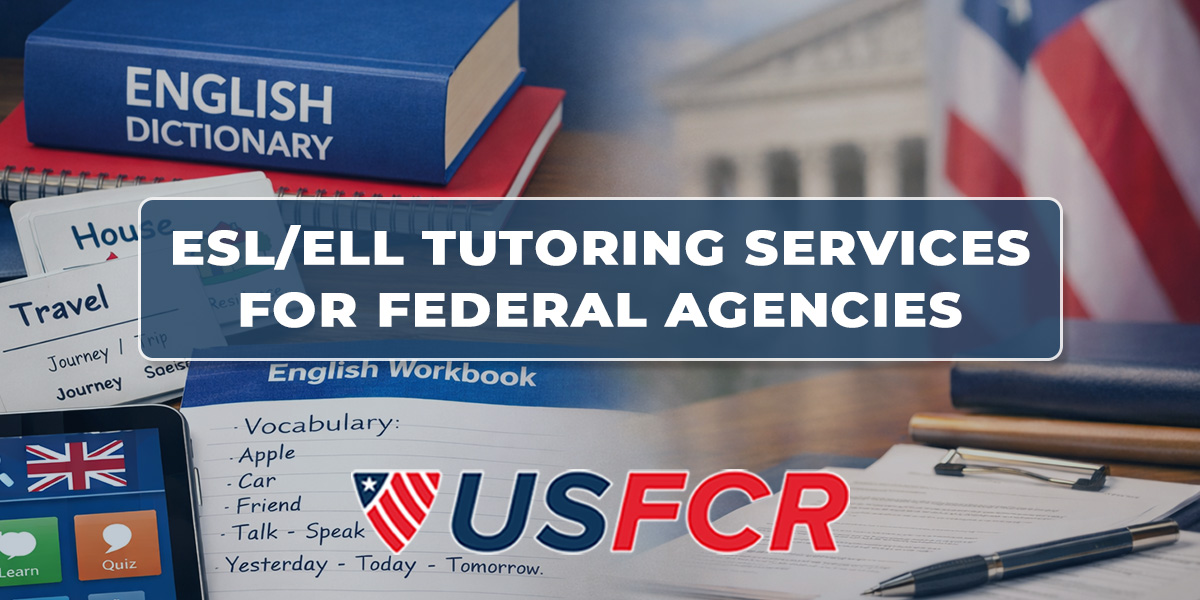USFCR
Recent Posts
This is your guide to unlocking a wider range of opportunities and increasing your cash flow from federal contracting.
After reading this, you’ll have everything you need to write a winning capabilities statement.
Let’s go.
You've registered in SAM, checked all the boxes, and set up your email alerts. Now you're waiting for the perfect opportunity to land in your inbox. Months pass. Maybe you bid on a few things and hear nothing back. Meanwhile, you're watching companies with similar capabilities win contracts you never even knew existed.
You've probably heard that federal contracting is competitive. And in IT services or professional consulting, that's true: dozens of companies fighting over the same contracts, racing to the bottom on price.
But here's what most contractors don't realize: there are entire industries where government agencies struggle to get even a single bid. Not five bidders. Not three. One.
Federal Contracts for Web Developers: How to Get Government Website Work
Jan 16, 2026 9:00:00 AM / by USFCR posted in News, cmmc, Tech, Industry-Specific Contracting
You've built websites for years. You know React, you know UX, you ship projects on time. Somewhere along the way you heard that the federal government needs websites built, and now you're wondering if there's real money there for a small shop like yours.
Here's what nobody tells you: every federal agency has web presence needs. Not just the Department of Defense building classified systems, but the National Park Service updating their visitor portals, the Small Business Administration maintaining their resource pages, and dozens of other agencies that need exactly what you already do. The work exists. The question is whether you're positioned to compete for it.
How to Qualify and Compete for OASIS+ Contracts
Jan 12, 2026 9:34:02 AM / by USFCR posted in General Services Administration (GSA), News
GSA's OASIS+ contract program just got bigger. As of January 12, 2026, all six solicitations are open under continuous enrollment, and five new service domains have been added to the original eight. For professional services contractors, this is the clearest path into long-term federal work.
If you missed the earlier submission windows, the door is open again. And it's staying open.
Top 10 IT NAICS Codes Driving Federal Spending in 2026
Jan 7, 2026 12:20:37 PM / by USFCR posted in cybersecurity, NAICS, Tech
Federal IT spending is projected to exceed $75 billion in civilian agencies alone this fiscal year, with the Department of Defense adding another $64 billion to the total. If your business provides technology services, selecting the right NAICS codes determines whether federal buyers can actually find you.
The North American Industry Classification System assigns codes to categorize businesses by what they do. For federal contracting, your NAICS codes control which opportunities you're eligible for, including small business set-asides that reserve contracts specifically for qualifying firms.
Here are the IT NAICS codes generating the most federal contract activity right now.
The Top IT NAICS Codes Driving Federal Spending
541519: Other Computer Related Services
This code leads federal IT spending for good reason. It covers cybersecurity services, IT infrastructure support, disaster recovery, and emerging technology implementation. With federal cybersecurity budgets exceeding $13 billion annually across civilian agencies, contractors under this code are in constant demand.
Agencies using this code include the Department of Defense, Department of Homeland Security, and virtually every civilian agency modernizing their systems. The breadth of services covered makes 541519 one of the most versatile codes for IT contractors.
541512: Computer Systems Design Services
System integration, cloud migration, and IT architecture fall under this code. Federal agencies are mid-stream on major modernization initiatives, replacing legacy infrastructure with cloud-based solutions that meet FedRAMP security requirements.
The push toward Zero Trust architecture is creating sustained demand. Agencies need contractors who can design and implement systems where every user, device, and application gets verified continuously rather than trusted by default.
541511: Custom Computer Programming Services
Custom software development, automation tools, and AI-powered applications drive spending in this category. Defense agencies and intelligence community organizations are the largest buyers, but civilian agencies are ramping up custom development for mission-specific needs.
The federal government's expanded focus on artificial intelligence is accelerating demand. Agencies need contractors who can build AI applications that comply with federal security requirements and integrate with existing government systems.
518210: Data Processing, Hosting, and Related Services
Cloud infrastructure and secure data hosting continue growing as agencies implement cloud-first policies. FedRAMP-certified hosting platforms are required for most federal data, creating opportunities for contractors with compliant infrastructure.
This code is particularly relevant for contractors offering Software as a Service (SaaS) solutions to government buyers. If your platform hosts government data, you'll need this NAICS code and the appropriate security certifications.
511210: Software Publishers
Licensing commercial software to federal agencies falls under this code. Enterprise platforms for collaboration, productivity, and specialized functions are in steady demand across government.
GSA Schedule contracts frequently use this NAICS code for commercial software purchases. If you sell licensed software products rather than custom development services, this code should be in your SAM registration.
541513: Computer Facilities Management Services
Managing government IT facilities and data centers remains a substantial market. This includes operating agency computer centers, network operations centers, and hybrid cloud environments.
Contractors providing ongoing IT operations support often compete under this code. It's particularly relevant for managed services contracts where the contractor takes responsibility for day-to-day IT operations.
541330: Engineering Services
While not exclusively IT, this code covers significant technology work, especially for defense contracts. System engineering, software engineering, and technical analysis services for complex programs often use this classification.
Defense contracts frequently combine engineering services with IT components. If your work involves engineering analysis alongside technology implementation, this code may apply.
541715: Research and Development in Physical, Engineering, and Life Sciences
Federal R&D programs in emerging technology, cybersecurity research, and advanced computing use this code. SBIR and STTR programs frequently fund technology research under this classification.
Smaller contractors often enter federal IT markets through R&D contracts. The funding is substantial, and successful research can lead to production contracts.
541611: Administrative Management and General Management Consulting Services
IT strategy consulting, digital transformation planning, and technology advisory services fall here. Agencies bringing in outside expertise to plan modernization initiatives use this code extensively.
This is a bread-and-butter code for management consulting firms with technology practices. If you help agencies plan their IT investments rather than implement them directly, this code fits.
561210: Facilities Support Services
Base operations and IT support services often combine under this code. Large facility management contracts frequently include technology support components.
For contractors providing comprehensive support services that include IT components, this code captures work that might otherwise require multiple classifications.
Why Your NAICS Code Selection Matters
Federal contracting officers search for vendors using NAICS codes. If your SAM registration doesn't include the codes matching the contracts you want, you won't appear in their searches.
Small business set-asides add another layer. Size standards vary by NAICS code, and your eligibility for programs like 8(a), SDVOSB, WOSB, and HUBZone depends on meeting the size threshold for each specific code.
The SBA assigns different revenue or employee limits to each NAICS code. A company might qualify as small under one code but not another. Understanding which codes apply to your actual work, and which size standards you meet, determines your competitive positioning.
Where the IT Dollars Are Going
Federal IT priorities for fiscal year 2026 concentrate in several areas:
Cybersecurity remains the dominant investment category. Zero Trust implementation, software supply chain security, and continuous monitoring capabilities are drawing billions in contract funding. CISA's budget continues growing, and every agency has cybersecurity requirements embedded in their technology contracts.
Cloud Migration continues as agencies move remaining on-premises systems to approved cloud environments. Multi-cloud strategies are becoming more common, with agencies distributing workloads across multiple providers for resilience.
Artificial Intelligence spending is accelerating. Defense applications get the most attention, but civilian agencies are implementing AI for fraud detection, customer service automation, and data analysis. The emphasis on responsible AI development creates opportunities for contractors who can demonstrate secure, auditable AI implementations.
IT Modernization broadly encompasses replacing aging systems with current technology. Legacy system support is expensive and creates security vulnerabilities. Agencies have both the mandate and, in most cases, the budget to modernize.
CMMC Requirements Are Expanding
The Cybersecurity Maturity Model Certification started as a Department of Defense requirement but is spreading. Non-DoD agencies are adopting similar cybersecurity standards, and many IT contracts now require contractors to demonstrate specific security capabilities.
For IT contractors, CMMC compliance is becoming a market requirement rather than an optional credential. Contracts under NAICS codes like 541519 and 541512 increasingly specify CMMC levels in their requirements.
Getting certified before contracts require it positions you ahead of competitors who wait until the last minute. The certification process takes time, and agencies are watching for contractors who take cybersecurity seriously enough to pursue certification proactively.
How to Position Your Business
Update your SAM registration to include all NAICS codes that genuinely apply to your services. Most IT contractors qualify for multiple codes, and limiting yourself to one or two reduces your visibility to federal buyers.
Verify your size status under each code you're claiming. The SBA's Size Standards Tool confirms whether you qualify as small for specific NAICS classifications. Being small in the codes where you compete enables access to set-aside contracts.
Consider strategic certifications. Beyond CMMC, certifications like 8(a), SDVOSB, WOSB, and HUBZone open doors to sole-source and set-aside opportunities. The investment in certification often pays back quickly through reduced competition.
Build past performance in your target NAICS codes. Agencies evaluate contractors based on relevant experience, and demonstrating success under specific classifications strengthens future proposals.
Getting Started
Federal IT contracting isn't reserved for large defense contractors. Small businesses capture billions in IT contracts annually through set-aside programs and competitive awards. The key is positioning your business where agencies can find you when they need your services.
Your SAM registration is the foundation. Make sure it accurately reflects your capabilities with the right NAICS codes, and keep it current. Expired registrations and missing codes cost contractors opportunities they never even see.
Speak with a Registration & Contracting Specialist: Call (877) 252-2700
Frequently Asked Questions
How many NAICS codes can I have in my SAM registration?
There's no limit. You can list every NAICS code that genuinely applies to your business. Most IT contractors legitimately qualify for multiple codes based on the range of services they provide.
Does my NAICS code affect my small business size status?
Yes. Each NAICS code has its own size standard, either based on annual revenue or number of employees. You might qualify as small under some codes but not others, depending on your business metrics.
Can I use different NAICS codes for different contracts?
Absolutely. Your SAM registration should include all applicable codes. When you bid on a specific contract, the solicitation will specify which NAICS code applies to that opportunity.
What happens if I use the wrong NAICS code?
Using an incorrect code can disqualify you from set-aside contracts or misrepresent your business to contracting officers. Ensure your codes accurately reflect your primary business activities.
When should I update my NAICS codes?
Review your codes whenever your business capabilities change significantly. Also check after NAICS system updates, which occur every five years, with the next revision scheduled for 2027.
Have questions? USFCR has helped over 300,000 businesses navigate federal registration and contracting. Contact us to discuss your situation.
Top Articles
State-Level Disaster Response Strategy
Jan 5, 2026 9:00:03 AM / by USFCR posted in News, Disaster Relief
Large architecture, engineering, and construction firms are reconsidering whether state-level disaster response contracts are worth the effort. That strategic withdrawal is creating opportunities for small businesses willing to invest in learning fragmented state procurement systems.
The math changed. When disaster response was heavily federal, big primes could pursue one massive FEMA contract and scale across multiple events. State-managed response means chasing different systems, different relationships, and different requirements in every state. For firms optimized around federal efficiency, that fragmentation destroys their business model.
For regional small businesses, the fragmentation is a competitive advantage. You already know your state. You're already local. You just need to understand how state emergency procurement actually works.
If you're pursuing defense contracts, the annual defense authorization bill shapes almost everything about how those opportunities flow. The 2026 NDAA just became law, and it includes changes that will affect your positioning, compliance requirements, and competitive strategy heading into the new year.
ESL/ELL Tutoring Services for Federal Agencies
Dec 19, 2025 9:00:01 AM / by USFCR posted in Industry-Specific Contracting
You've built a tutoring business helping people learn English. Your instructors are qualified, your methods work, and your students are succeeding. Now you're wondering if there's federal money available for the kind of work you're already doing.
